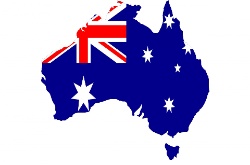AFTINET Welcomes Committee Recommendations For Small Changes In The Trade Agreement Process, But More Needed
The Joint Standing Committee on Treaties (JSCOT) has finally released its Report 193 on the trade agreement process in Australia, 12 months after public hearings were completed.
“We welcome the Report’s modest recommendations in the direction of more transparency and independent evaluation of trade agreements. This is the first time that a government-dominated committee has recommended changes to the process, and is a small response to our advocacy over many years, but more is needed,” Dr Patricia Ranald, AFTINET Convenor, said today.
“Trade negotiations are initiated by Cabinet, negotiated in secret with very limited public consultation, and the text is not published until after they are signed. There is no independent evaluation of the economic, social or environmental costs and benefits of agreements before they are signed, and Parliament only votes on the enabling legislation, not on the whole text of the agreement,” explained Dr Ranald
The government-controlled majority committee report recommends that the Government should publish negotiation aims and objectives for all future trade treaty negotiations and the Government should brief the JSCOT twice a year on the status of upcoming and current free trade agreement negotiations.
The Report also recommends consideration of the use of non-disclosure agreements with key stakeholders to allow for improved consultation in certain areas of trade agreement negotiations, and consideration of a process through which independent modelling and analysis of a trade agreement, is undertaken in the future by an independent expert body, and provided to the Committee alongside the National Interest Analysis.
“We note that the independent evaluation would be undertaken only after the agreement is signed, when the agreement would be difficult to change. This is too late in the process, and lags behind global trends for more open processes like those of the European Union,” said Dr Ranald.
“The Labor and Green minority on the committee supported further changes, which we welcome, including that the text be published and independently evaluated after trade negotiations are completed, but before agreements are signed,” said Dr Ranald.
“The Committee’s recommendations are not binding on the government, but we hope the government will respond and take action,” said Dr Ranald
See more detailed analysis of the committee report here.


 SNAP: Survivors Deliver Vos Estis Lux Mundi Complaints Against Six Cardinals To Vatican Secretary Of State Parolin
SNAP: Survivors Deliver Vos Estis Lux Mundi Complaints Against Six Cardinals To Vatican Secretary Of State Parolin UNICEF Aotearoa NZ: Myanmar Earthquake A Further Blow For Millions Of Children
UNICEF Aotearoa NZ: Myanmar Earthquake A Further Blow For Millions Of Children Greenpeace: 'Desperate And Deceitful'- Deep Sea Mining Frontrunner Turns Its Back On Pacific Nations
Greenpeace: 'Desperate And Deceitful'- Deep Sea Mining Frontrunner Turns Its Back On Pacific Nations 350.org: Australia Announces Election Dates, Pacific Islanders Rally To Vote For Climate
350.org: Australia Announces Election Dates, Pacific Islanders Rally To Vote For Climate UNICEF Aotearoa NZ: Global Aid Funding Cuts - 14 Million Children At Increased Risk Of Severe Malnutrition And Death
UNICEF Aotearoa NZ: Global Aid Funding Cuts - 14 Million Children At Increased Risk Of Severe Malnutrition And Death Oxfam Aotearoa: Humanitarian Operations In Gaza Severely Hampered; Famine Risks Increasing
Oxfam Aotearoa: Humanitarian Operations In Gaza Severely Hampered; Famine Risks Increasing